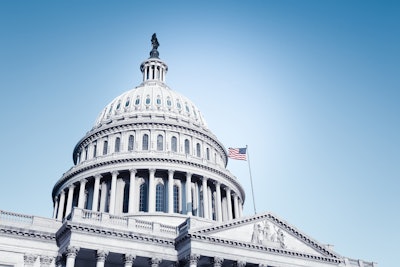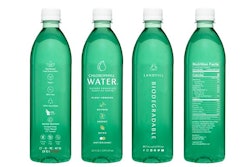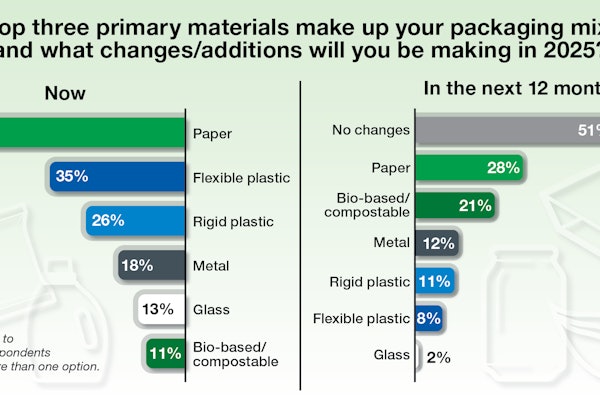U.S. Senator Tom Udall (D-N.M.) and U.S. Representative Alan Lowenthal (D-Calif) are circulating a discussion draft of legislation to tackle plastic waste. The lawmakers are seeking public comments and stakeholder input, building on their initial comment period, before they plan to introduce the bill in Congress. The initial comment period has received more than 150 responses.
“The sheer volume of plastic pollution that is inundating our communities, our waterways, and even our bodies is nothing short of a crisis,” says Udall. “Our children are already bearing the cleanup costs of a generation of single-use plastic that is clogging our rivers and is infiltrating our food chain. Cities and states across the country, including in my home state of New Mexico, are already taking action to reduce this plastic footprint before it’s too late. But we need a bold, national strategy to tackle plastic pollution. This bill would call on all of us, from companies to communities, to address this crisis head-on.”
The legislation outline is as follows:
1. Require plastic producers to take responsibility for collecting and recycling materials: Producers currently relying on plastic and other covered materials to deliver their products to the market will be required to design, manage, and finance programs to process any waste that would normally land in the natural environment. The legislation will encourage producers to cooperate with those who produce similar products to take responsibility for their waste and implement cleanup programs with Environmental Protection Agency approval. Producers will cover the costs of waste management and cleanup, as well as awareness raising measures for covered materials, which includes packaging and consumer paper products, regardless of the recyclability, compostability, and type of material; printed paper; bio-based products; tobacco products, including filtered cigarettes; and fishing gear.
2. Require nationwide container deposits: The legislation will institute a 10-cent national deposit requirement for all beverage containers, regardless of material, to be refunded to customers when they return containers. Any unclaimed refunds will go to beverage producers to offset investments in nationwide collection and recycling infrastructure. This legislation encourages states that have already implemented similar initiatives to continue their current systems if they match the federal requirements.
3. Ban certain pollutant products: Beginning in January 2022, the most common single-use plastic products that pollute our environment will be banned from sale and distribution. The ban will apply to lightweight plastic carryout bags, food and drinkware from expanded polystyrene, cutlery, plates, straws, drink stirrers, and cotton buds, with exceptions for persons with disabilities.
4. Carryout bag fee: The legislation would impose a fee on the distribution of non-reusable carryout bags, which would fund litter cleanup and recycling infrastructure.
5. New minimum recycled content requirement: Containers will be required to include an increasing percentage of recycled content in their manufacture before entering the market.
6. Protect existing state action: The bill would protect state and local governments to enact more stringent standards, requirements, and additional product bans.
7. Moratorium on new plastic facilities: The legislation will give environmental agencies the time needed to investigate the cumulative impacts of new plastic-producing facilities on the air, water, and climate. The legislation would also update EPA regulations to reduce factory-produced plastic contamination in waterways and direct the EPA to update existing Clean Air and Clean Water Act emissions standards to ensure that plastic-producing facilities integrate the latest technology to prevent further pollution.
“Today we face a global plastic pollution crisis that threatens our waterways, wildlife, and public health,” adds Lowenthal. “The amount of plastic waste in our communities and the oceans is evidence of the urgent need to tackle this issue, an effort in which the United States is currently lagging. The European Union, Canada, and even India and China are taking bold actions to address this growing crisis. There is currently no incentive in this country to reduce and reuse plastic, or for producers to use recycled plastics. That is why the legislation I am introducing with Senator Udall is so important. The financial burden of cleaning up pollution should not be borne by taxpayers alone. The manufactures and companies who sell the products must be held accountable for the end use of their products.”
The comment submission instructions are as follow:
· All are invited to submit comments and direct edits to the discussion draft.
· Download the discussion draft here.
· Submit your comments to [email protected] and [email protected] by Close of Business, Thurs., Nov. 21, 2019
· Include your name and/or organization on page 1 of the document.
· Save the document as your name and/or organization.
· Comments or modifications to the original document will appear in red in Track Changes mode.
· More substantive comments can be added with the “New Comment” feature embedded in the document to reference specific sections of the draft.


























